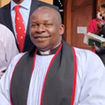Why Kaziimba needs UJCC more than they need him
The Uganda Joint Christian Council has also concerned itself largely with making political utterances and this could be a significant point of contention between Kaziimba and Lwanga.
OPINION

The last several days have been awash with news of estrangement that exists between Archbishop Samuel Stephen Kaziimba of Church of Uganda and Uganda Joint Christian Council which is under the chairmanship of Archbishop Cyprian Kizito Lwanga of the Roman Catholic Church.
This feud is believed to have started last month on December 23, 2020, when Archbishop Lwanga issued a statement on the behalf of UJCC that Church wished for the cancellation of general elections this month and the incumbent Yoweri Museveni takes an automatic three-year extension.
Archbishop Kaziimba, a member on UJCC was quick to disown the statement in what was a snub to Lwanga, the Chairman of UJCC. The climax of this feud was on 4th January, when UJCC organized joint prayers for the nation at which Archbishop Kaziimba chose not to participate.
Additionally, prayers which were meant to be hosted at St. Paul's Cathedral, Namirembe, of the Anglican faith on 6th January were also cancelled under unclear circumstances.
Political watchers will not miss the political overtones that this feud carries. While we may never know what is going on in Archbishop Kaziimba's mind right now and as to whether to him, the question of joint prayers may seem of no consequence; one thing that is for so sure is Kaziimba as Archbishop is now in the public eye and how he sees and tackles this question will determine if he can settle down quickly to effectively encounter and grapple with issues and concerns that Anglicans face in their daily lives. This estrangement will, therefore, likely matter much more to him than to UJCC.
This is a critical time in our Anglo-catholic relations and any trace of antagonism to the unique relationship flies in the face of major historical and biblical commitments to the goal of achieving a "full visible communion in the truth of Christ'. The Uganda Joint Christian Council (UJCC) which was established in the 1960s, was meant to deal with the fundamental questions regarding our church as communion.
In order to keep in step with all other local and international ecumenical efforts, they must therefore stay united. In the Episcopal Church, which is the Anglican faith in the United States, they have made significant progress in their dialogue with the Roman Catholic Church through the Anglican-Roman Catholic Dialogue in the USA (ARC-USA) and have now moved further to the third phase of exploring in-depth, how an ecumenical church at both local and universal can discern right ethical teaching. At the Church of England, the Anglican Communion Office through the Anglican-Roman Catholic International Consultations (ARCIC) has also advanced their ecumenical work which was climaxed with the common declaration signed in 2006 by Rowan Williams, then Archbishop of Canterbury, and Pope Benedict XVI. Archbishop Kaziimba, who has only six years left on his tenure as Archbishop, has a lot to lose if he holds back on his contribution to the local and international progress on ecumenical work.
The Uganda Joint Christian Council has also concerned itself largely with making political utterances and this could be a significant point of contention between Kaziimba and Lwanga. Yet, Kaziimba should keep around and remind peers that the real work is with contributing towards the Vatican's launch of an Apostolic Constitution, a document that outlines provisions to accept groups of former Anglicans who wish to enter into full communion with the Roman Catholic Church, ecumenical dialogue on the inauguration of ARCIC III and also more critically with addressing challenges facing all Christian communities like the Covid-19 global pandemic, a locust invasion and flooding caused by heavy rains and the need to promote forms of joint Christian collaborations and shared witness in facing these challenges.
Dr Kaziimba does well to encourage peers to move beyond mere political utterances and instead assure each other that the real work of ecumenical dialogue between Anglicans and Roman Catholics lies with ARCIC III, to explore how questions are raised about the level at which decisions are made about ethical, liturgical, and ecclesial matters and to translate the degree of ecumenical communion ARCIC III into visible and practical outcomes to Ugandans.
Finally, Kaziimba should know that his responsibility to UJCC cannot be only and primarily in institutional and organizational terms. Rather it should be in transitional context, focusing largely on the entire ethos' of UJCC involving a willingness to approach partners and to extend the hand of reconciliation, in order to heal the wounds left by history (purification of memories).
Without the danger of betraying our faith or our conscience, UJCC as a family has so much to do in terms of common bible study, exchange of spiritual experiences, gathering of liturgical texts, joint worship in services of the Word, a better understanding of our common tradition as well as our existing differences, co-operation in theology, in mission, in cultural and social witness, co-operation in the area of development and environmental conservation, in the mass media, etc. as part of exploring wider spiritual ecumenism and ecumenical formation.
Whatever the options are for Archbishop Kaziimba, it is ultimately his choice to decide how he will relate to his peers at UJCC. In any case, the Church is no stranger to disagreements, internal fights or even schism. But, soon or later one will understand the Church is not personal after all.
Through her vast network of parishes and churches, the Church belongs to the communities where Anglicans, Catholics and Orthodox are all centred and plays a vital role in the communal life of the people. Kaziimba will therefore be at an advantage if he stays in the steam of things.
The author is the Chaplain, Kampala Capital City Authority.
Author, Rev. Canon Erich Kasirye (revekasirye@yahoo.com)